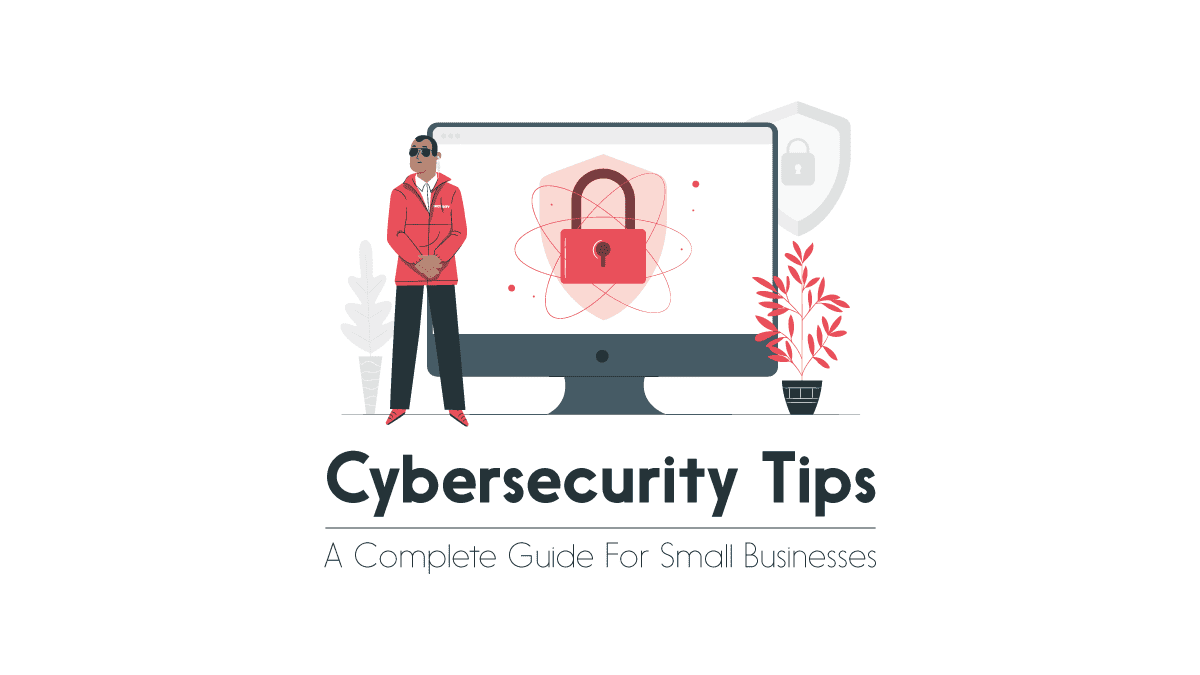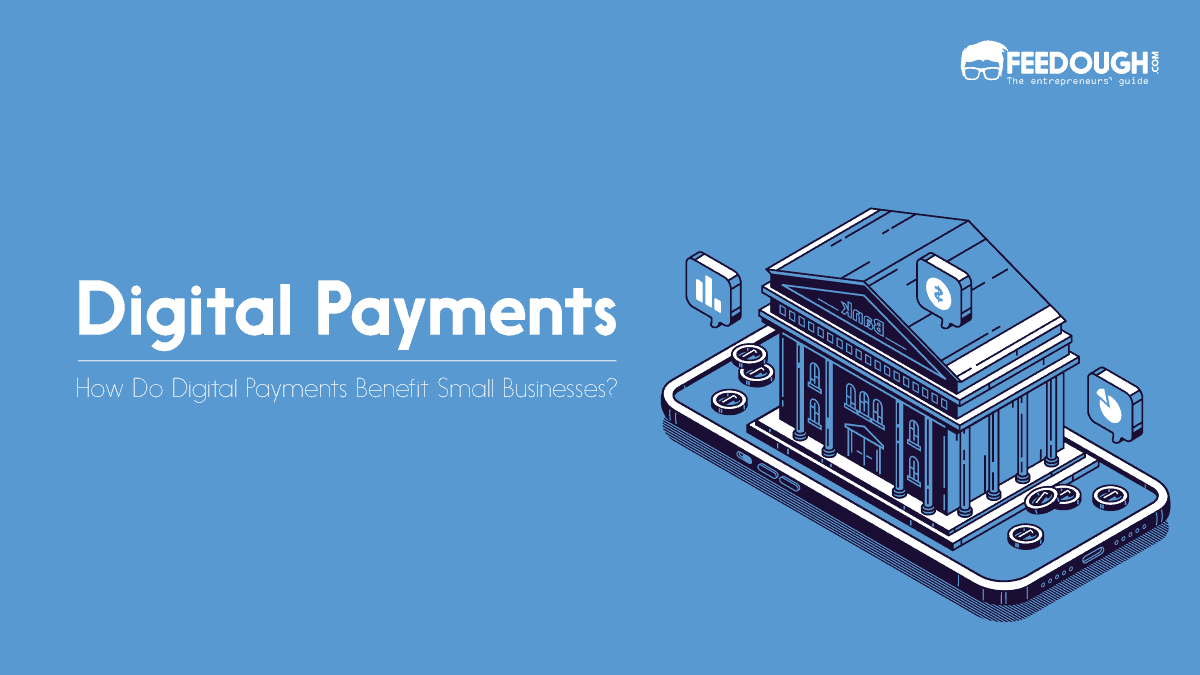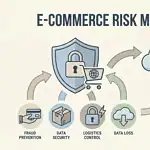While the internet came in as a blessing for our businesses – making communication, marketing and sales much easier – it also brought with it the threat of cyber attacks.
The problem?
Attackers don’t discriminate between a big or a small business when they find a vulnerability to exploit.
The bigger problem?
Small businesses like yours might not even have the resources to get back on their feet after a cyber attack.
Expect financial losses, a damaged reputation and potential loss of customers if you don’t take the necessary measures to protect your business.
But fret not! Here are some cyber security tips specifically designed for small businesses that can help keep your data, assets and reputation safe.
But if you’re still not convinced, here’s why cybersecurity is important for your business
The Importance Of Cybersecurity For A Small Business
A small business is just as vulnerable to cyber attacks as a big corporation, if not more.
Without adequate protection, your business can become an easy target for hackers and other malicious actors.
These are some reasons why cybersecurity should be a top priority for your small business:
- Data breaches: Small businesses often collect sensitive customer information, such as personal and financial data. A data breach can not only lead to financial losses but also damage trust with your customers. What if your competitor gets access to your customer data? Or some scammer who poses as your business and steals sensitive information from customers? It’s a nightmare you don’t want to experience.
- Ransomware attacks: This type of cyber attack involves encrypting your data and demanding a ransom for its release. Small businesses are often targeted because they may not have backups or the resources to recover from an attack, making them more likely to pay the ransom.
- Intellectual property theft: If your small business relies on unique products or services, it’s at risk of intellectual property theft. Hackers can steal your designs, source code, trade secrets, and other valuable information that could give your competitors an unfair advantage.
- Damaged reputation: A cyber attack can damage the reputation your business has built over the years. Your customers may lose trust in your ability to protect their data, leading to a decline in sales and potential loss of customers.
- Financial losses: Recovering from a cyber attack can be expensive, especially for small businesses with limited resources. You may have to cover the costs of fixing the damage, hiring cybersecurity experts, and implementing new security measures to prevent future attacks. Reports say that 95% of cybersecurity incidents at small and medium-sized businesses (SMBs) cost between $826 and $ 653,587.
- Compliance requirements: Depending on your industry, legal and regulatory requirements for protecting sensitive data may exist. Failing to comply with these regulations can result in heavy fines and legal consequences.
- Loss of productivity: A cyber attack can disrupt your business operations, leading to downtime and loss of productivity. This can result in financial losses and damage to your reputation.
Cyber Security Tips For Small Businesses
An interesting fact – 95% of cybersecurity breaches are because of human error. It could be as trivial as clicking on a malicious link or using weak passwords. It could also be a silly mistake, like not updating software or falling for social engineering tactics.
To prevent these, here are some essential cyber security tips for small businesses:
Protect Your Website
It’s not just your endpoint devices and networks that need protection; your website is also a prime target for cybercriminals. As a small business, your website is often the first point of contact with potential customers, making it critical to secure it from cyber threats.
Here are some essential steps you can take to protect your website –
- Install an SSL certificate: An SSL (Secure Sockets Layer) certificate adds a layer of security by encrypting all data transmitted between your website and visitors’ browsers. It also displays the padlock icon in the address bar, reassuring visitors that their connection is secure.
- Regularly update software: Software vulnerabilities are often exploited by hackers to gain access to websites. Regularly updating your content management system (CMS), plugins, and other software can help prevent these attacks.
- Install a antivirus on your server: If you’re on an unmanaged hosting plan, it is recommended to install a reputable antivirus on your server to scan for and remove any malware or viruses that may affect your website. There are several free and paid options available in the market. Just a simple google search for best server antivirus will provide you with a list of options to choose from.
- Use secure passwords: Strong passwords are essential for securing your website. Avoid using common or easily guessable passwords, and consider using a password manager to store all your credentials securely.
- Install a strong WAF: A Web Application Firewall (WAF) filters and blocks malicious traffic before it reaches your website. It can protect against common attacks like cross-site scripting (XSS) and SQL injection.
Train Workforce Regarding Cybersecurity
Your employees are your first line of defence against cyber attacks. You do need to ensure your workforce –
- Identify the different cyber threats like spoofed emails, phishing attacks, ransomware, etc.
- Know how to spot fake websites and malicious links.
- Understand the importance of strong passwords and not sharing them with anyone.
- Use multi-factor authentication for all accounts. It could involve using a security key, an authentication app, or a one-time code sent to the user’s phone.
- Keep software, operating systems, and security patches up-to-date.
To teach the same, you either need to take the teaching step yourself or involve a cybersecurity expert who teaches them the same using workshops or sessions. The curriculum should involve –
- Recognising phishing attempts: Phishing scams are a common way hackers steal sensitive information. Train your employees to identify suspicious emails, links, and attachments.
- Secure password practices: Encourage your employees to use strong passwords that include uppercase and lowercase letters, numbers, and special characters like. Also, educate them about the dangers of using the same password for multiple accounts.
- Safe browsing practices: Your employees should know not to visit suspicious websites or download attachments from untrustworthy sources.
- Data protection procedures: They should be aware of protocols for handling sensitive data and how to securely transfer information.
- BYOD policies: If your employees use their devices for work, ensure they understand the security risks and follow BYOD (Bring Your Own Device) policies.
- Incident reporting protocols: In the event of a cyber attack, your employees should know who to contact and what steps to take.
You can even include gamified tasks to ensure your employees can differentiate phishing emails, maintain strong passwords, and follow other security protocols.
Introduce Strong Cybersecurity Policies & SOPs
Cybersecurity policies refer to the set of rules and guidelines that outline how your employees should behave when it comes to data security. It could include –
- Access controls: Limit access to sensitive data to only those who need it for their job.
- Data backup procedures: Regularly back up your data and store it in a secure location. This will help you recover quickly from a ransomware attack or any other cyber incident.
- Network security measures: Install firewalls, antivirus software, and other security tools to protect your network from cyber threats.
- Device management protocols: Implement policies for managing employee devices used for work, such as setting up password requirements, installing security updates, etc.
You can even create cybersecurity-oriented standard operating procedures (SOPs) that guide your employees on how to use company devices, handle sensitive information, and report any suspicious activity.
For example, if your small business involves handling customer’s personal information, you can have an SOP for securely storing and using customer data like credit card numbers, addresses, etc.
Invest in Cybersecurity Tools & Services
While cybersecurity solutions seem pricey at first, the cost of recovering from a cyber attack is likely to be far more expensive. Here are some key areas where you should invest in cybersecurity tools and services:
Endpoint Protection
An endpoint is any internet-connected device like a laptop, desktop, smartphone, etc. According to data breach investigation reports, 81% of businesses experienced an attack involving some form of malware, which often targets endpoints.
Hence, protecting your endpoints is critical. Invest in a good –
- Antivirus software: An antivirus program helps protect devices from various types of malware, ransomware, and other cyber threats. It also scans incoming emails, attachments, and downloads for malicious content. Ensure you look for antivirus software with real-time protection, automatic updates, and email scanning features.
- Firewall: A firewall acts as a barrier between your network and the internet, monitoring incoming and outgoing traffic to detect potential threats. It can prevent unauthorised access to your network, making it an essential tool for small businesses with limited IT resources.
- VPN: While using public Wi-Fi, a VPN (Virtual Private Network) helps secure your internet connection by encrypting data transmitted between your device and the network. This prevents hackers from intercepting sensitive information like login credentials or financial details.
Network Security
Network security refers to the protection of your network infrastructure from cyber threats. Some key tools and services to ensure network security are:
- Intrusion Detection Systems (IDS): IDS monitors traffic passing through your network and alerts you if it detects any malicious activity. Some advanced IDS also have the capability to block suspicious traffic automatically.
- Vulnerability Scanners: These tools scan your network for any potential security vulnerabilities that can be exploited by hackers. They also provide recommendations on how to fix these vulnerabilities before a cybercriminal can exploit them.
- Network segmentation: It involves dividing your network into smaller subnets, limiting access between them and reducing the potential damage in case of a breach in one section.
Data Encryption Tools
Data encryption tools help protect sensitive information by converting it into code that can only be accessed with a decryption key. If you handle confidential data like credit card numbers or intellectual property, data encryption tools are a must-have for your small business.
Backup Important Data
Data backup involves creating copies of important information from a primary location to a secondary storage site. This helps prevent data loss due to hardware failures, software errors, or other issues. Regular backups are essential for avoiding the permanent loss of data.
For small businesses, data loss can be especially damaging. Losing critical data due to hardware or software failures could disrupt operations and, in severe cases, even lead to business closure. Small businesses are often more vulnerable to cyber threats, as they tend to have weaker security systems.
Ransomware attacks, which lock businesses out of their own data until a payment is made, are a growing threat. Regular data backups allow businesses to recover their information without having to pay a ransom, minimising the impact of these attacks.
To protect your data, it is recommended to have multiple backups in different locations. This could include cloud-based backups and physical backups on external hard drives or servers. Here are some of the best solutions for small businesses to backup their data –
- Cloud-based backup services: Services like Google Drive, Dropbox and OneDrive offer cloud storage solutions with automatic backups. These services have different pricing plans depending on your storage needs.
- External hard drives: You can also manually back up your important data on external hard drives or USB flash drives. This option is relatively inexpensive but requires regular manual backups.
- Network Attached Storage (NAS): NAS systems are a combination of hardware and software that allow multiple devices to access a shared network drive for storing and retrieving data. This option is best suited for businesses with large amounts of data to back up regularly.
Establish a Secure Wi-Fi Network
A secure wifi network forms the backbone of your business’s network security. It is essential to secure your wifi network to prevent unauthorised access and potential data breaches.
Here are some steps you can take to secure your wifi network –
- Change default login credentials: The first step in securing your wifi network is changing the default username and password for your router. Default credentials are widely known and can be easily exploited by hackers.
- Enable WPA2 encryption: WPA2 (Wi-Fi Protected Access 2) is currently the most secure form of wifi encryption. Make sure that it is enabled on your router to protect your network from eavesdropping attacks.
- Utilise a guest network: If you have visitors or clients accessing your wifi network, create a separate guest network for them. This will prevent them from accessing sensitive information on your main network.
- Set up a firewall: Many routers come with built-in firewalls that can filter out malicious traffic and protect your network from cyber attacks.
- Limit access to your router’s settings: Only authorised personnel should have access to the router’s settings. Restricting access can prevent potential security breaches.
Create A Response Plan
A response plan is your roadmap for what to do in case of a cyber attack or data breach. It should outline the steps you need to take to minimise the impact of an attack and recover your systems and data.
Here are some key components to include in your response plan –
- Identify and classify critical assets: Identify the most crucial assets in your business, such as customer information, financial data, and intellectual property. Classify them based on their importance and level of sensitivity.
- Assign roles and responsibilities: Determine who will be responsible for managing different aspects of the response plan. This could include IT personnel, management, legal counsel, etc.
- Create a communication plan: In case of a cybersecurity incident, it is essential to have a plan for communicating with customers and stakeholders. This could include drafting templates for communication and identifying the appropriate channels to use.
- Regularly update your response plan: Cyber threats are constantly evolving, so it’s important to regularly review and update your response plan to address new types of attacks.
A good response plan also helps you meet legal and regulatory requirements. It strengthens your business by defining roles, assigning crisis communication, and preserving evidence.
But ensure you regularly test your response plan to identify potential weaknesses and make necessary adjustments. Conducting drills can help you evaluate the effectiveness of your plan and improve it accordingly.
A startup consultant, digital marketer, traveller, and philomath. Aashish has worked with over 20 startups and successfully helped them ideate, raise money, and succeed. When not working, he can be found hiking, camping, and stargazing.









